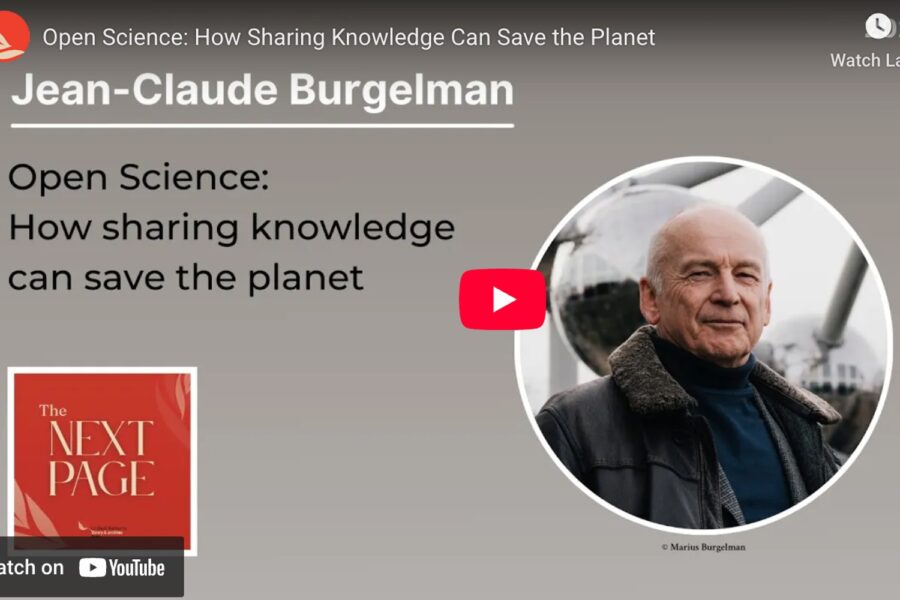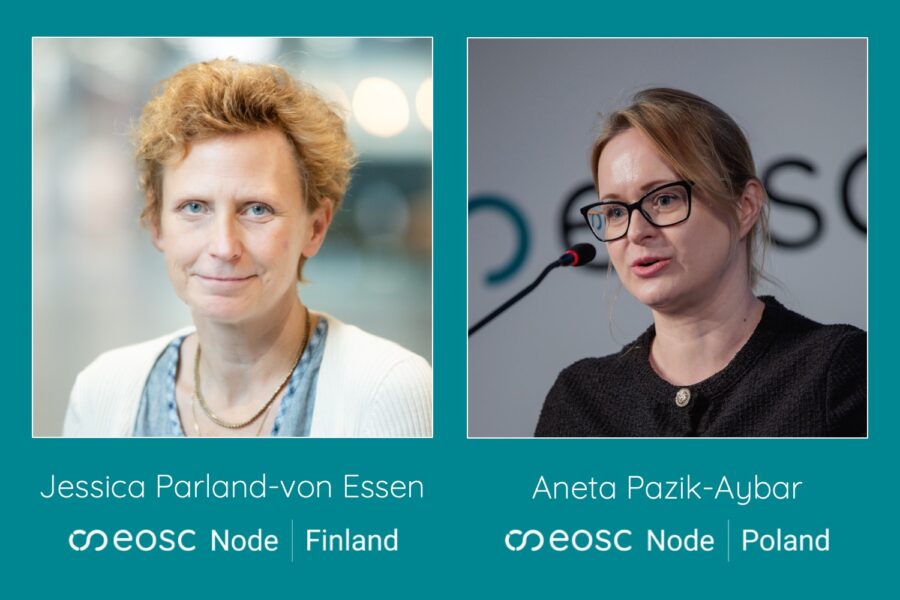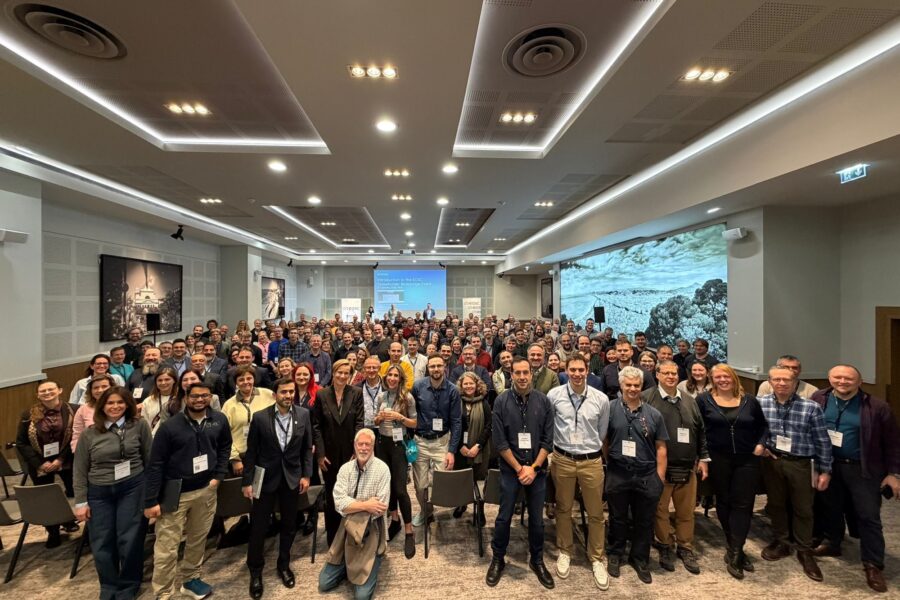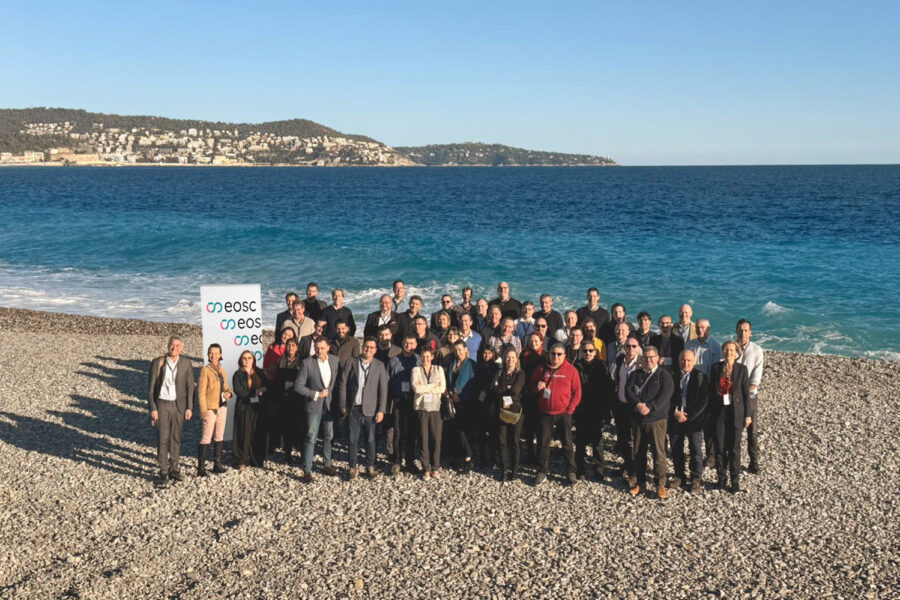The 2022 EOSC Symposium in Prague offered not only a chance to catch up on everything going on around EOSC: it also provided the perfect opportunity for people working in the EOSC ecosystem to meet each other face-to-face, renewing old acquaintances and making new connections.
To strengthen connections between projects, Task Forces and board members, EOSC Focus invited these groups to an informal get-together during the Symposium. The gathering was intended to build on the HE projects coordination meeting held on 30 September in Brussels, where the EOSC Association Vademecum was presented. The social event served to broaden existing connections and gave space to form new connections among new projects and the EOSC Task Forces. While enjoying food and drinks, EOSC Focus helped to facilitate interesting discussions about where the different projects and topics meet, what challenges they are facing and how they all fit together under the umbrella of EOSC.
Some of those joining the event have been around since the start of EOSC, but others are “the new kids on the block”. Among these newcomers—including nonetheless some well-known faces—were the new Horizon Europe projects of the Destination INFRAEOSC 2021/2022 calls and other recently inaugurated EOSC-related projects.
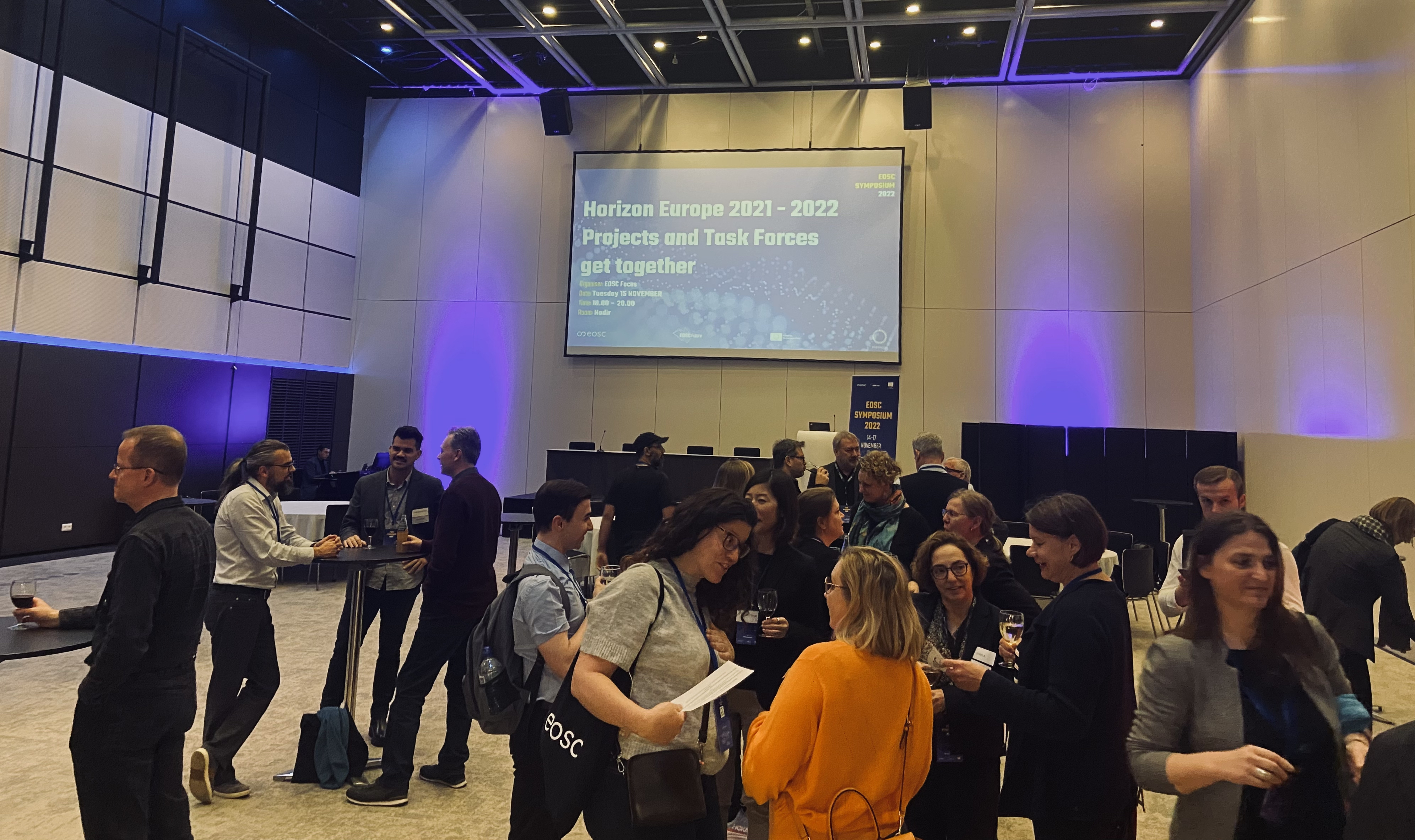
AI4EOSC will deliver an enhanced set of services for the development of AI, machine learning and deep learning models and applications in EOSC.
EuroScienceGateway works on democratizing data analysis, leveraging a federated open access computational infrastructure through Galaxy as a gateway for data resources, tools and applications by the FAIR principles.
FAIRease builds the first inter-domain digital architecture for integrated use of environmental data, operating distributed and integrated services for observation and modelling of the earth system, environment and biodiversity.
FAIR-IMPACT supports the implementation of FAIR-enabling practices, tools and services across scientific communities at European, national and institutional level, contributing to an EOSC of FAIR data and services.
FAIRCORE4EOSC develops nine new EOSC-Core components based on the identified gaps in the EOSC Strategic Research and Innovation Agenda (SRIA) and leveraging existing technologies and services to improve discoverability and interoperability of research outputs.
Skills4EOSC aims at fostering skills for the European Open Science commons: empowering Europe with an EOSC ready digital workforce.
EOSC4Cancer aims at connecting EOSC and the European Health Data Space (EHDS) to advance cancer research along the patient journey.
EOSC Focus has as primary objective to support the EOSC Partnership to meet the objectives outlined in the Memorandum of Understanding between the EU and the EOSC-A. To achieve this, EOSC Focus will implement a number of measures to engage stakeholders and gather information that tracks progress towards KPIs.
BY-COVID works on making data from infectious diseases open and accessible to everyone.
RAISE aims to provide a distributed crowd-sourced data processing system, moving from open data to data open for processing.
e-IRG-SP7 supports the e-IRG policy advisory body in its strategic vision to facilitate integration of European strategic vision to facilitate integration of European e-Infrastructures and connected services, within and between EU Member States and Associated States at European and global level.
WorldFAIR facilitates global cooperation on FAIR implementation in eleven domains and cross-domain areas.
The Blue-Cloud 2026 project will build on the Blue-Cloud Europe to develop a thematic marine extension to EOSC for Open Science towards a federated European ecosystem of FAIR open data and analytical services of ocean science.
AquaINFRA will develop an EOSC-compliant virtual research environment to support the restoration of healthy oceans, seas, coastal and inland waters.
SCiLake will develop a platform for creation, maintenance, interlinking and unified querying of heterogeneous scientific knowledge graphs, providing advanced, discipline-tailored AI-assisted knowledge discovery services on top of them.
GraspOS will develop and operate an open and trusted federated infrastructure for next generation research metrics and indicators, offering data, tools, services and guidance to support and enable policy reforms of research assessment.
CRAFT-OA is the follow up project of the Diamas project and will improve the situation of Diamond Open Access publishing platforms to ensure that journal publications and publishing infrastructures become part of EOSC.
RDA Tiger will provide direct and indirect support for research data alliance groups working on EOSC and FAIR relevant challenges.

